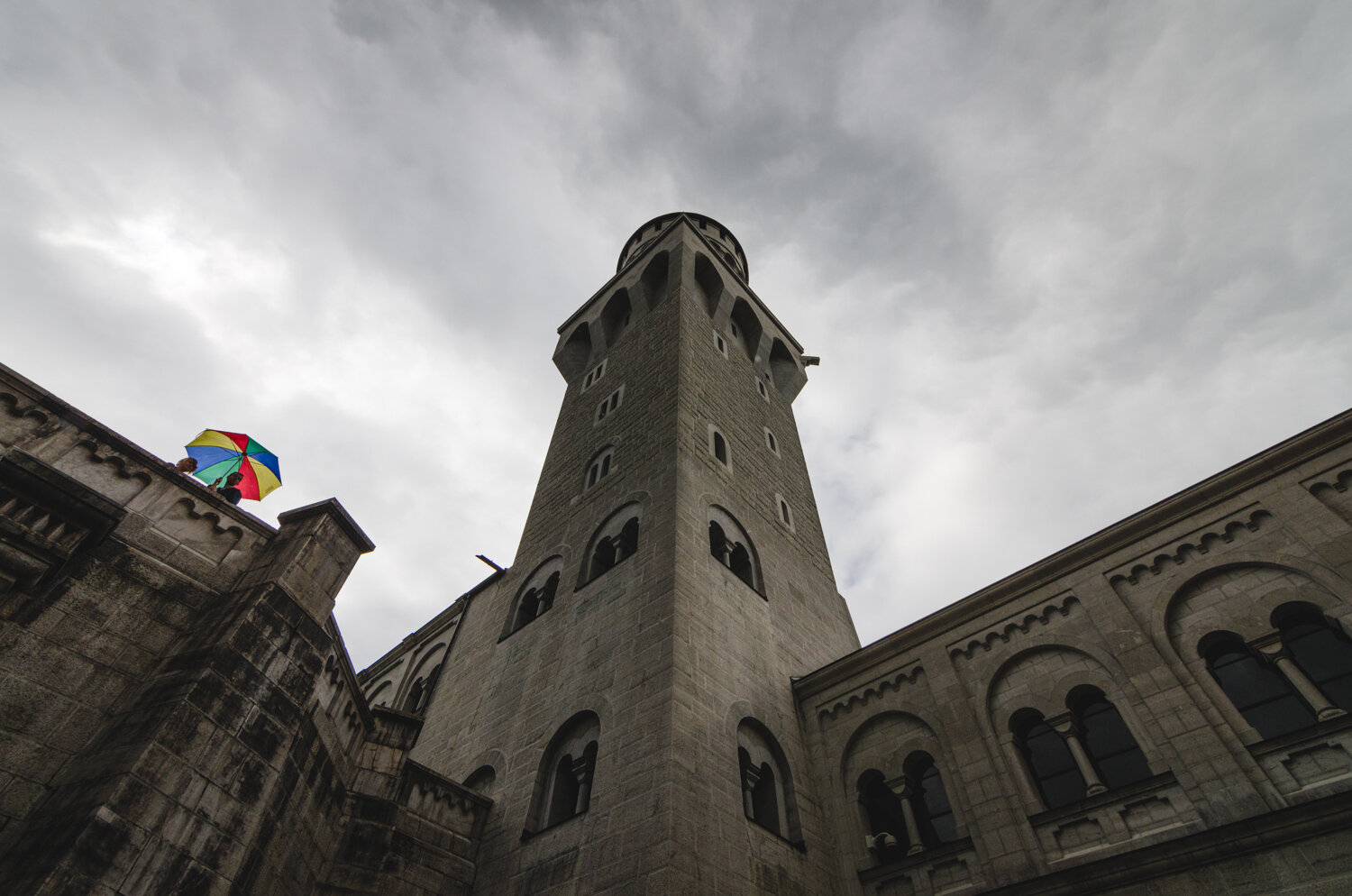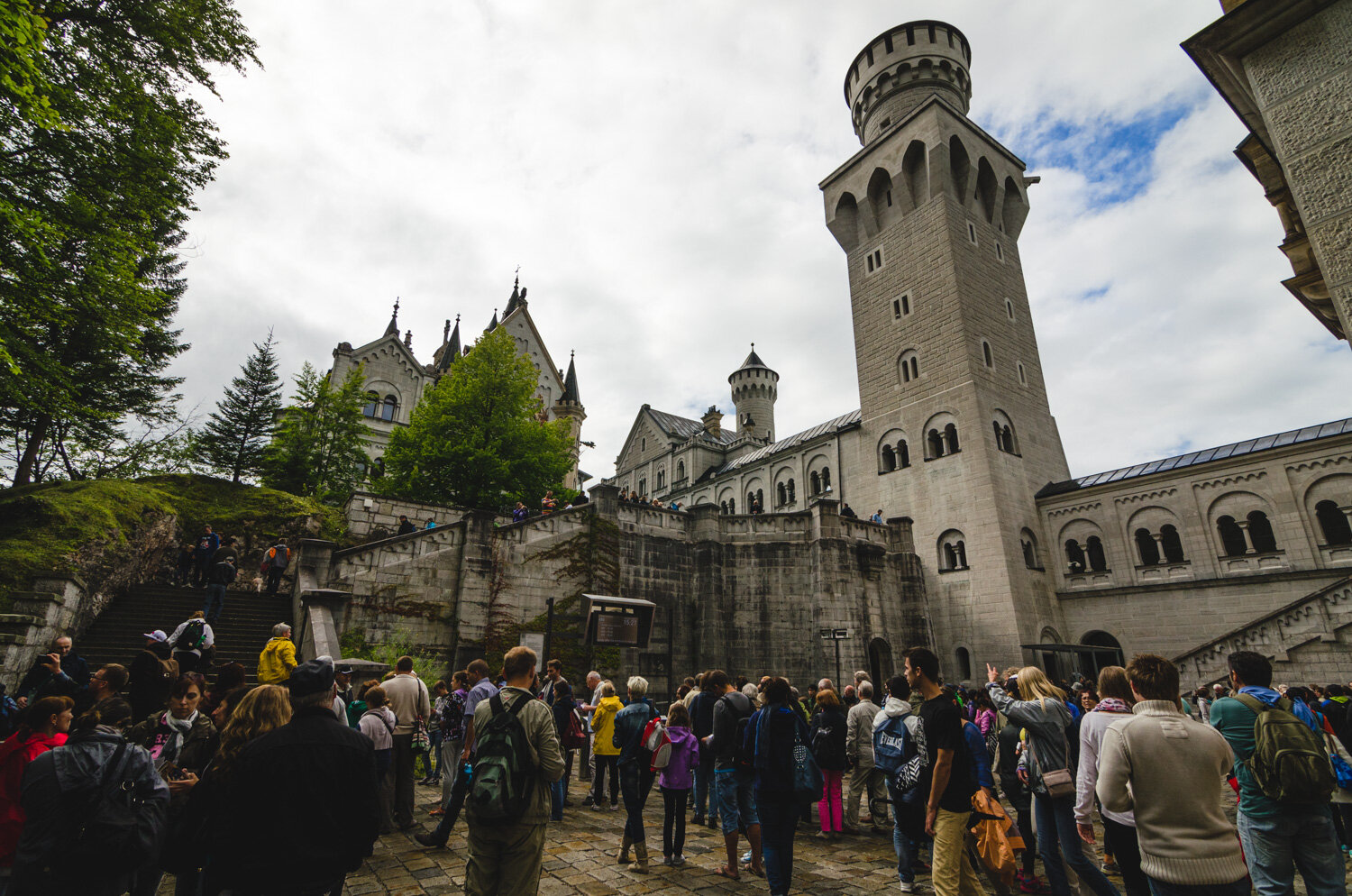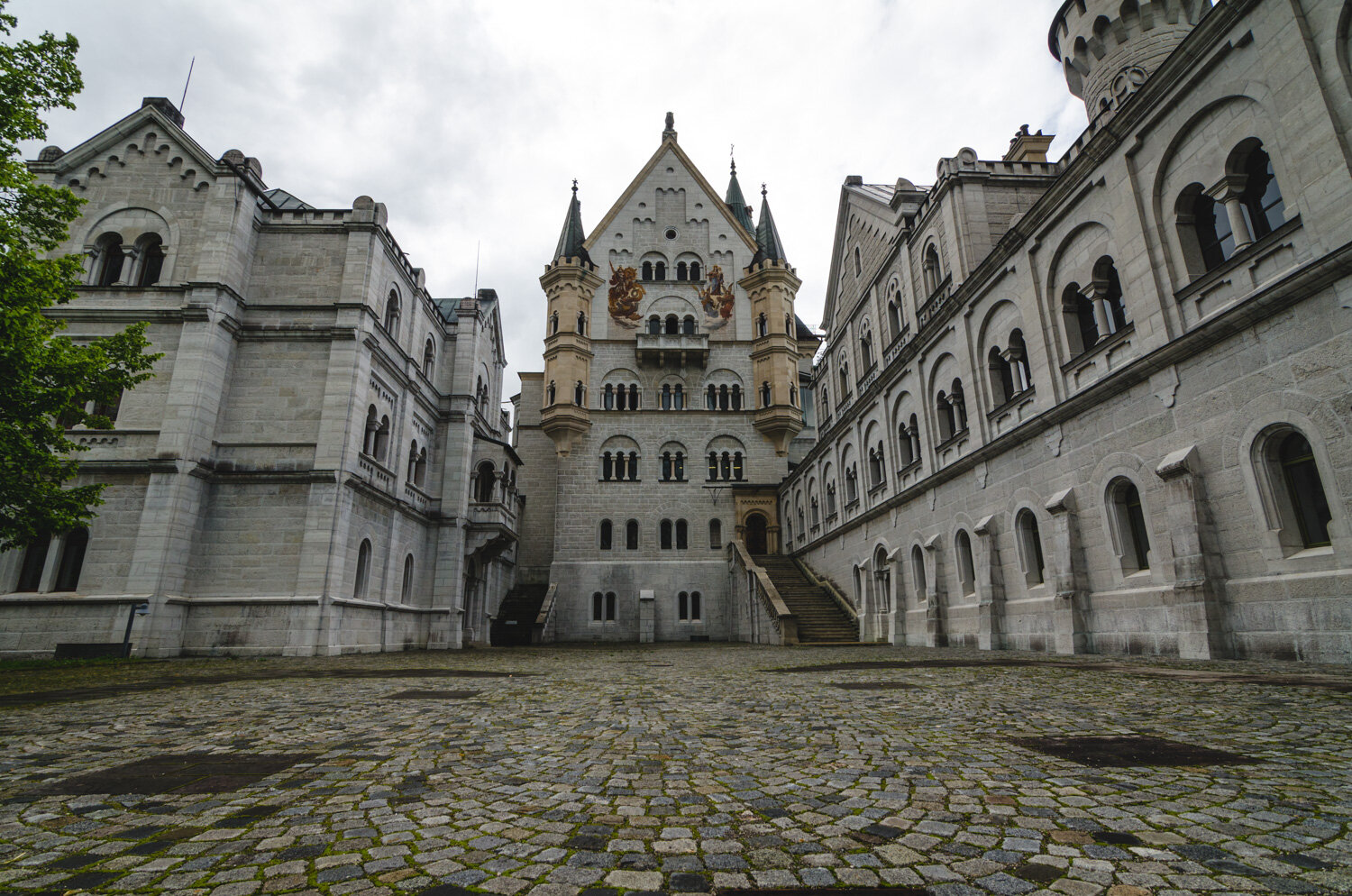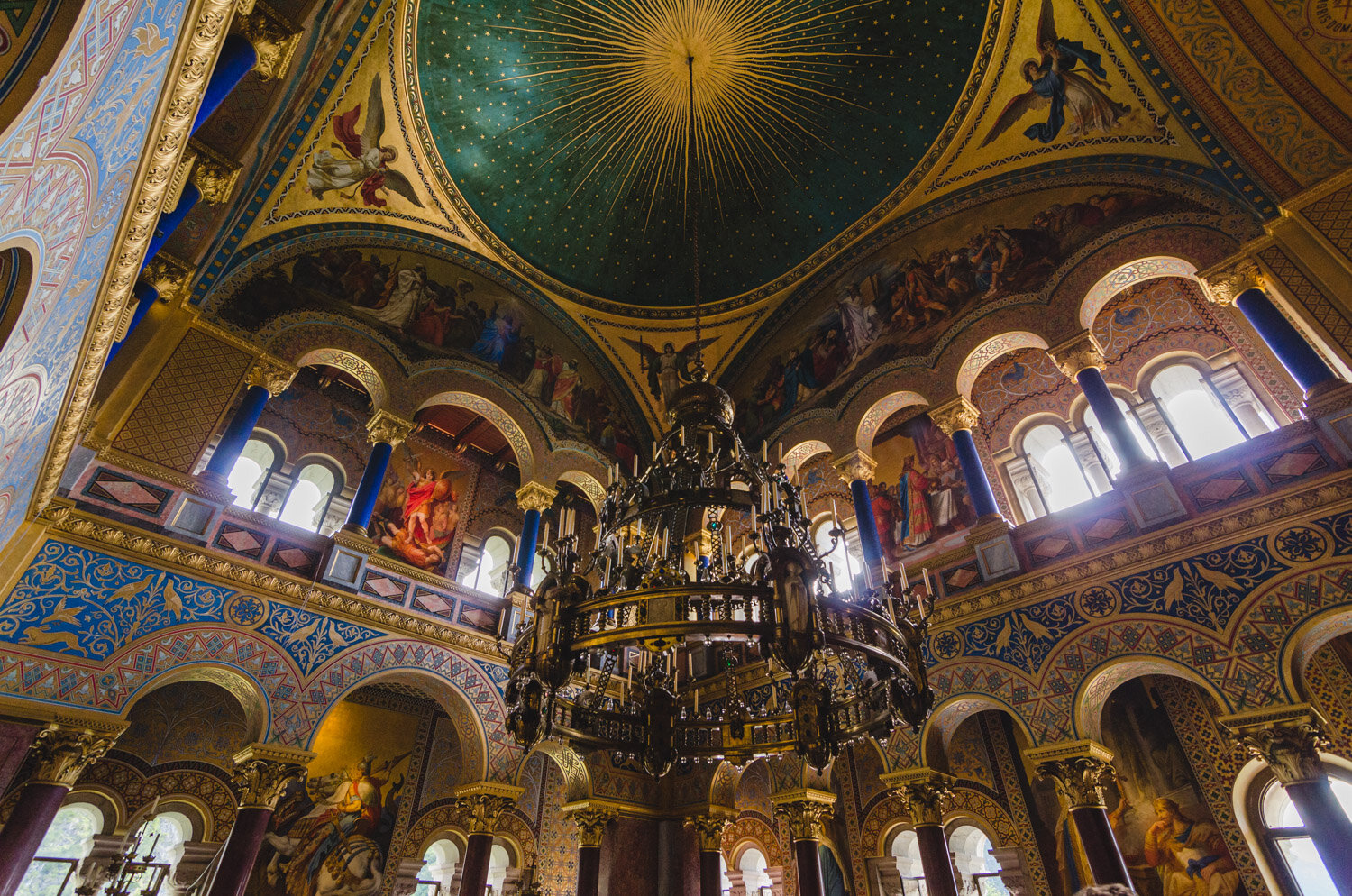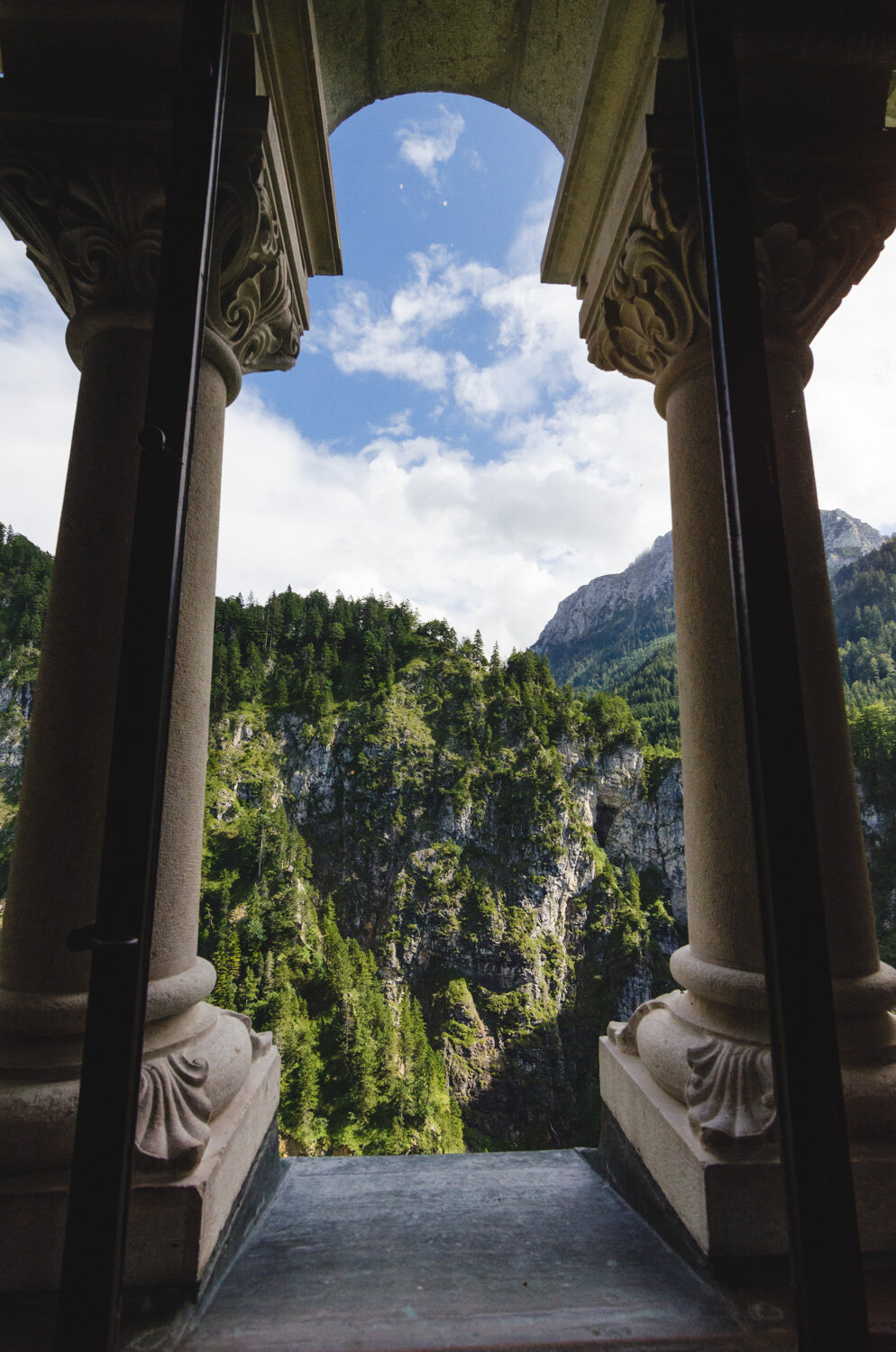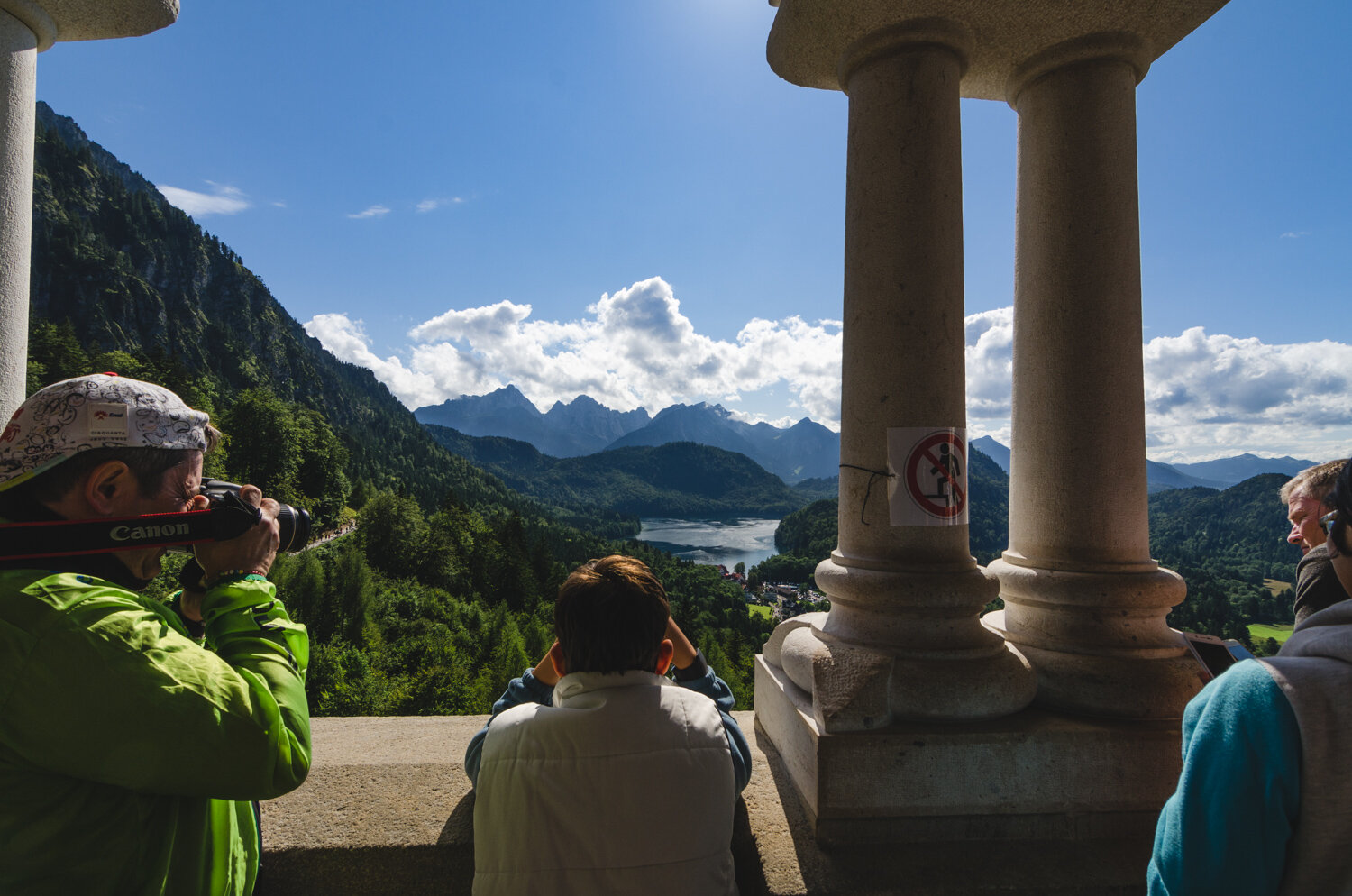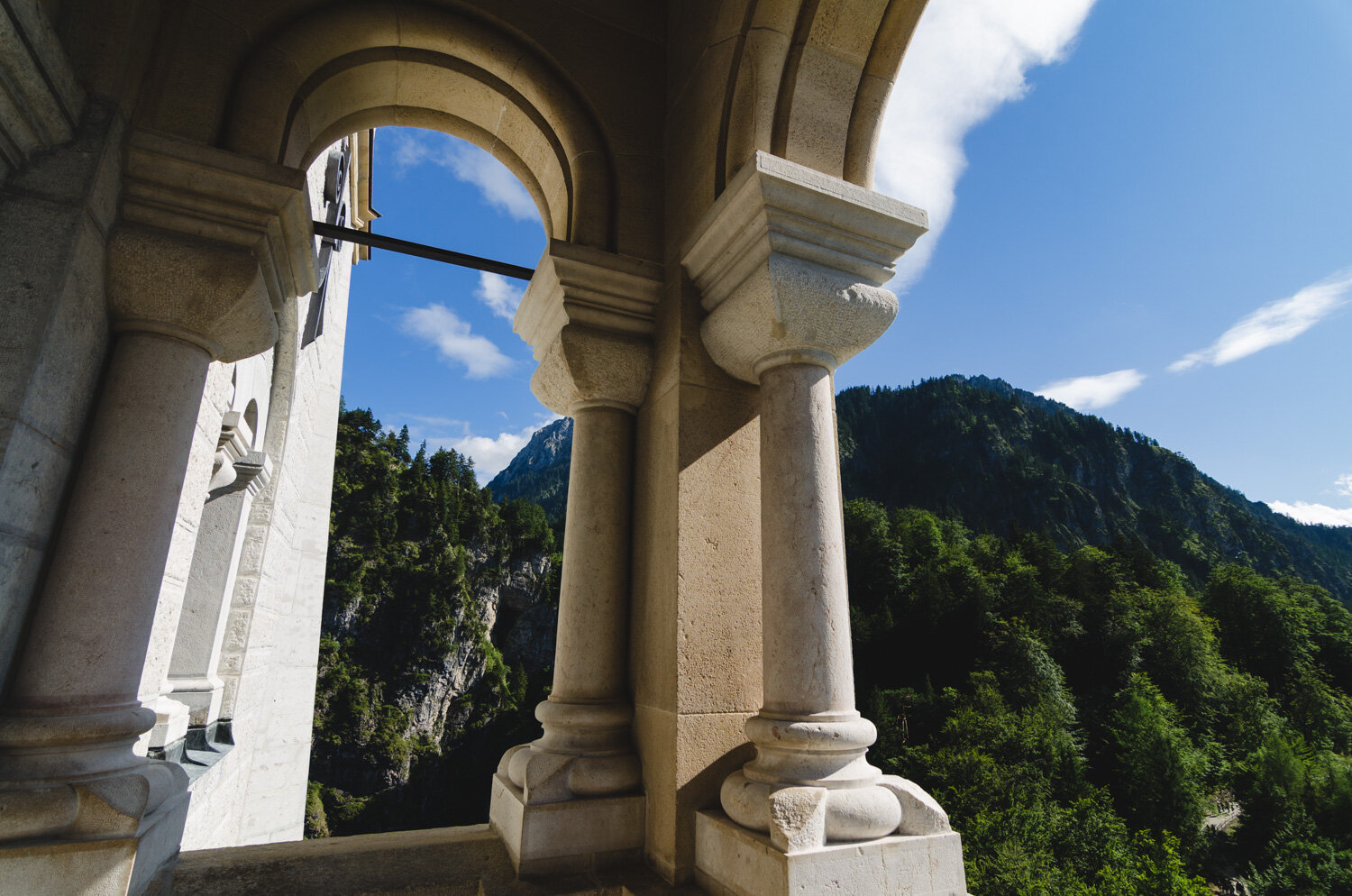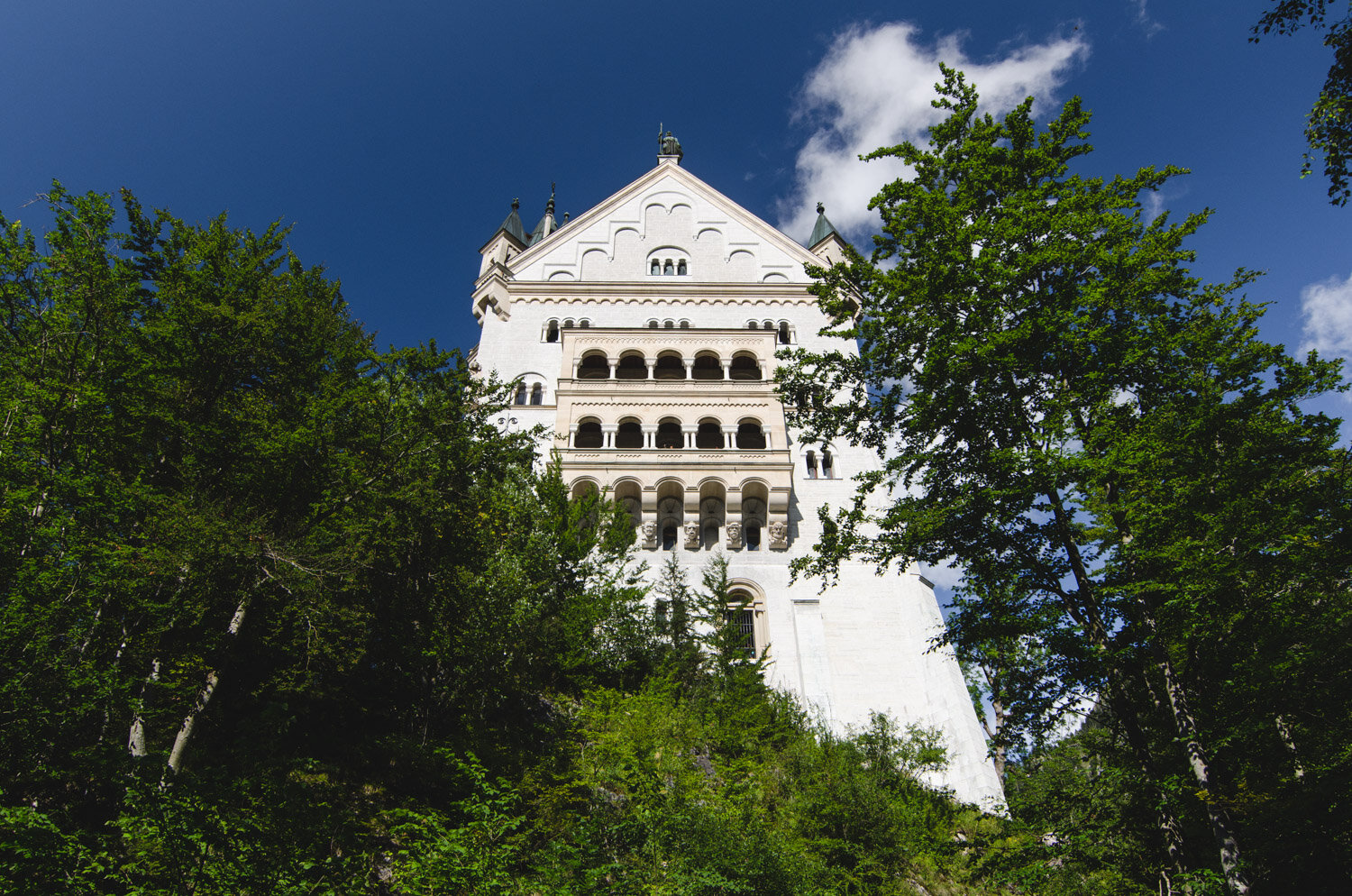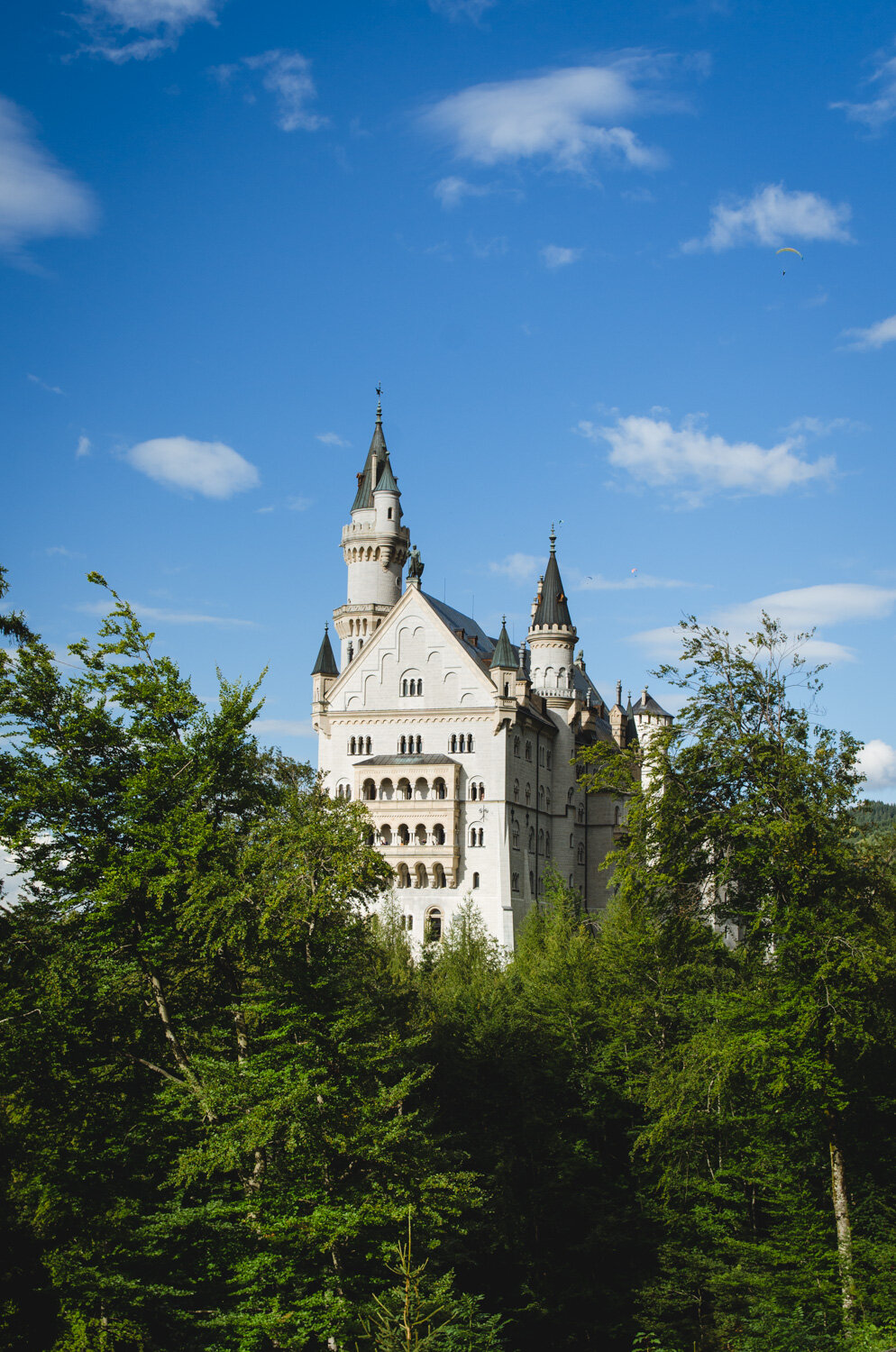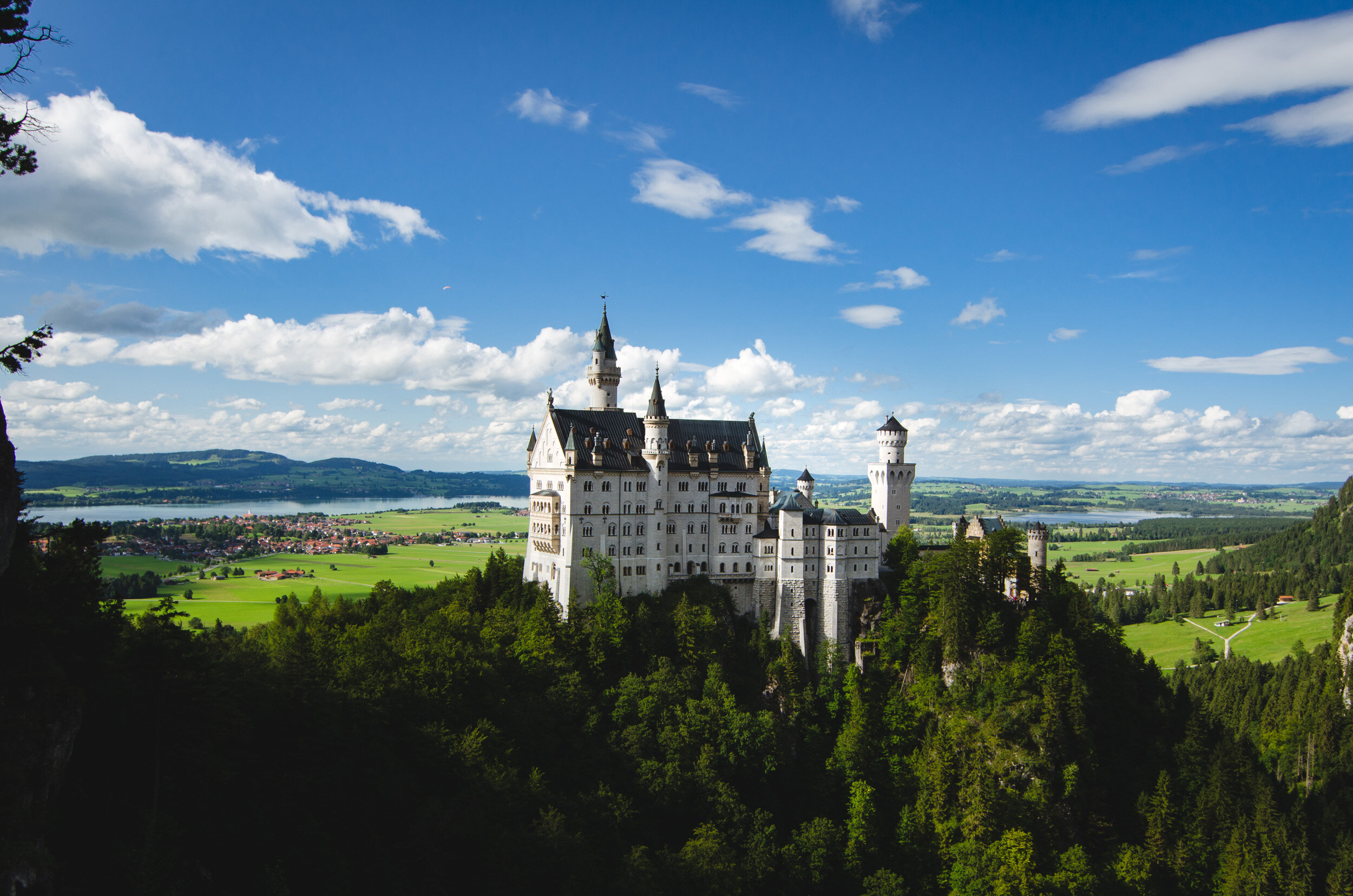The Imperfect Castle
Neuschwanstein Castle of southern Bavaria, Germany, is the most beautiful castle in the world. Period. The exterior walls are tall, slender and as white as a swan's feather. The colossal cylindrical towers protrude proudly. Inside, the long hallways are a parade of magnificent mosaics and masterpiece murals. Archways, pillars, chandeliers. Every furnishing meticulously worked by the finest craftsmen of all of Europe. The colours; royal blues and rich golds and every shade in between. Everything beautiful, absolutely no expense spared. All of this luxury is precariously perched on top of a rocky outcrop, lush green fields to the north and rugged handsome mountains to the south. It is the perfect manifestation of a fairytale castle.
The Cinderella Castle of the Walt Disney Resort in Florida (also seen at the start of any Walt Disney Pictures movie) is a obvious imitation. Coincidentally both castles were also not built for military use. Construction of Neuschwanstein started in 1869 - well beyond the era of castles and siege warfare. In terms of warfare this beautifully decorated castle would have been as impractical as riding into battle on the back of a zebra.
So who built this beautiful but useless castle? And why?
King Interrupted
Ludwig, c. 1874
Ludwig II was born in 1845, the eldest son of Maximilian II, King of Bavaria. Ludwig received a strict and isolated education to prepare him for his royal duties, although he seemed to be more of a dreamer and expressed a strong interested in music, art and fantasy. At the age of 15 he saw the opera Lohengrin written by Richard Wagner (the famous "here comes the bride" song comes from this opera). The opera had a profound influence on the young impressionable Prince and further ignited his imagination for fantasy and fairytales.
Maximilian II died unexpectedly in 1864 and Ludwig II was hurried onto the throne at the age of 18. He immediately summoned Richard Wagner to his court who after writing Lohengrin had fallen into debt and was on the run from creditors. Ludwig paid off all of Wagner's debts and gave him a house so he could continue writing his next opera. Ludwig also commission the construction of a new opera house; the Gärtnerplatz-Theater (still one of the most active theatres in Germany today).
Ludwig's rein as King was short lived as Bavaria was forced into the Austro-Prussian and subsequent Franco-Prussian war. The unfavourable outcome of these wars resulted in Bavaria being absorbed into a new United Germany empire under the rule of King Wilhelm I. Bavaria did maintain some autonomy allowing Ludwig to remain on his throne but merely as a vassal king.
Ludwig, who had been raised to be a royal ruler, now found himself with no kingdom to rule.
A Kingdom State of Mind
After the unification Ludwig became disinterested in the German Empire and Bavarian politics. Untethered from the burden of ruling over an independent country he neglected his royal duties and instead begun to deeply indulge himself in the arts and theatre. He often bought out entire opera houses and theatres so he could have a private performance for just himself.
However, Ludwig's main focus became his extravagant construction projects, the main three being;
Linderhof Palace; he demolished the original palace because it did not meet his high standards.
Herrenchiemsee; modelled on the Palace of Versailles, residence of Louis XIV who Ludwig greatly admired and considered a "proper king".
Neuschwanstein Castle; this was to be Ludwig's home. The design was heavily influenced by scenes from Wagner's operas Tannhäuser and Lohengrin and Ludwig's own romantic vision of the middle ages.
Ludwig's extravagant expenditure put the king heavily in debt. His political cabinet became increasingly concerned and tried to talk sense into Ludwig. However, this political nagging only irritated Ludwig who responded by threatening to fire his whole cabinet and replace them all with yaysayers. The threat of dismissal was the last straw for the cabinet who concluded that Ludwig had to be removed from his throne and be replaced by his much more rational uncle, Prince Luitpold. The only legal way to remove the King was to have him declared insane so the cabinet assembled a team known as "the medical report" to build a case against Ludwig. This case was built wholly on rumours and stories told by former servants. Despite the lack of direct evidence the cabinet considered this case sufficient and publicly declared King Ludwig insane and unfit to rule.
Ludwig was arrested and taken to Lake Berg for treatment. His appointed physician; Dr Gudden (a well-respected psychiatrist) was reportedly optimistic about Ludwig's condition. However, they were both found dead in the lake only hours later. Ludwig's death was officially declared as suicide by drowning although it is widely speculated that he was murdered.
The two prevailing theories are that either Ludwig attempted to escape by boat and was shot by a unnamed minder (Dr Gudden was caught in the crossfire). Or; Ludwig was assassinated by a hitman sent by the medical report, possibly in response to Dr Gudden's optimism and fears that Ludwig would soon be declared fit to rule again.
The stuff dreams are made of
Ludwig was no ordinary king. Some might say he was a deluded fool who squandered his wealth trying to construct and live out an idealised medieval fantasy. Others might argue that he was a passionate advocate and champion for art, music and fantasy. Regardless, he has left Europe with a legacy that is hard to quantify. His immoderate construction projects that brought him financial ruin are now extremely popular and profitable tourist attractions that have ironically paid for themselves many times over. Neuschwanstein Castle alone receives over a million visitors a year. Wagner, with Ludwig's support, wrote "Tristan und Isolde" a landmark opera and an important milestone in the development of modern music, some citing it was the start of modern music.
Perhaps we could all learn a bit from Ludwig. It is easy nowadays to become preoccupied by ordinary tasks and commitments. Ludwig did not do ordinary. I am not implying you have to build a castle, or financially support a troubled artist, but try doing something that you would consider out of the ordinary once in a while.
If you are in southern Germany, do visit Neuschwanstein Castle. It is the stuff dreams are made of.
